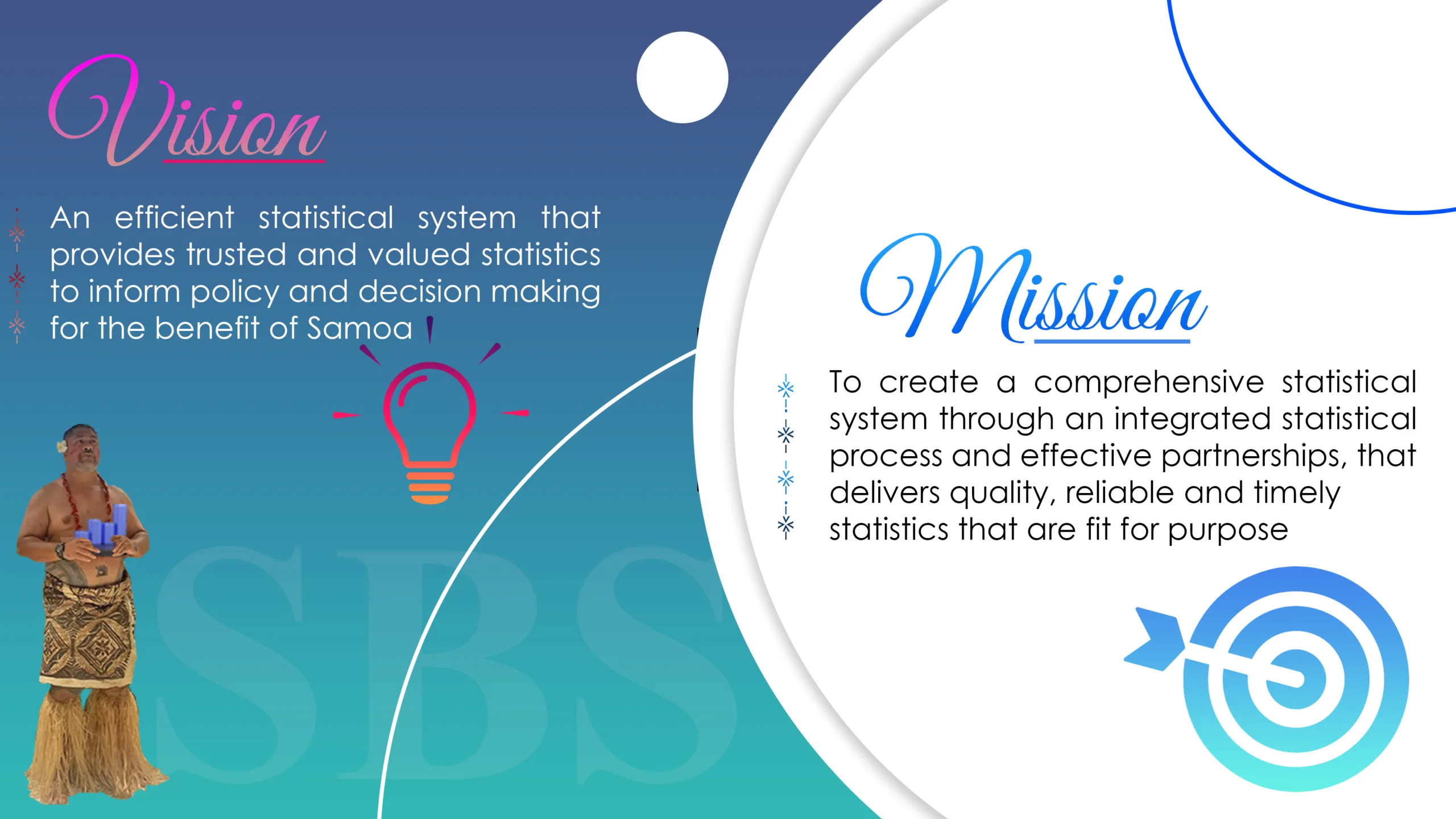About Us
A review about the Samoa Bureau of Statistics
The Bureau of Statistics has a mandate to support statistical activities and services in Samoa.
In this role SBS can sometimes help in practical aspects of the design and carrying out of statistical activities, and provide information about best practise and international standards for statistics.
If you are involved in the development or use of statistics about Samoa, contact the Bureau. Advice can be given in areas including:
- Questionnaire design
- Survey design
- Sample selection for household surveys
- Maps of sampled areas
- Recruitment and management of interviewers
- Advice on processing data
- Training on statistical analysis and report writing
- Standard classifications and methods for Samoa
Using samples of households from the Bureau’s GIS household survey frame helps to manage the survey burden on Samoa’s small population.
Contact SBS for more information.
office service Charter
The Project has four main components: Component 1: Organisational Management – to strengthen the management capacity of the SBS and its systems in the areas of strategic planning, human resource management & development; work programming, budgeting and records management Component 2: Statistical Services – to strengthen the capacity of the technical divisions in the SBS to provide key statistical services in the areas of macro-economic, social and socio-economic and socio-demographic statistics; and in the use of specific program and tools such as the HouseholdSurvey Capability Program (HSCP) and the National Census and in the development of effective and appropriate dissemination practice and processes.
This component fcuses on four areas: – Sub-component 2.1: Economic Statistics – to develop a coherent set of macro-economic statistics and to extend statistical activities to provide new information required by clients and delivered in a timely manner – Sub-component 2.2: Social Statistics – to develop a strong analytical capacity for social, socio-economic and socio-demographic data and to further develop the HSCP – Sub-component 2.3: Births, Deaths & Marriages – to improve completeness and timeliness of registration of vital events; and to develop appropriate records management and archiving processes – Sub-component 2.4: Statistics Dissemination – to develop a strong and clear approach to the dissemination of Samoa’s statistical data to national and regional clients and stakeholders Component 3: Statistics IT Systems and Processes – to develop a reliable, up-to-date and resilient IT system to support the operations of the SBS, including the website and GIS Component 4: Project Management – to ensure that inputs from the PSIF and other Government of Samoa sources are effectively and efficiently managed and that the project component objectives are met.
Samoa Bureau of Statistics Internal Communications Protocols
Principles
Principles
Goal - To improve communication between all people in SBS so that
Goal - To improve communication between all people in SBS so that
Communicate Well
Communicate Well
Follow email protocols
Follow email protocols
Maintain good relationships
Maintain good relationships
Actions
Actions
Samoa Bureau of Statistics External Communications Protocols

